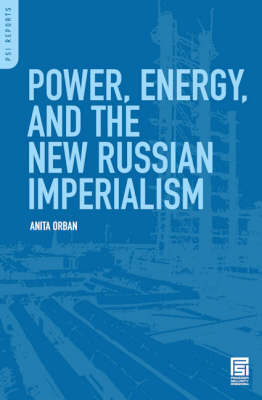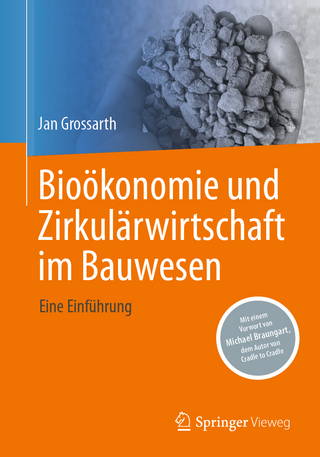
Power, Energy, and the New Russian Imperialism
Praeger Publishers Inc (Verlag)
978-0-313-35222-5 (ISBN)
Russia is the world's foremost energy superpower, rivaling Saudi Arabia as the world's largest oil producer and accounting for a quarter of the world's exports of natural gas. Russia's energy reserves account for half of the world's probable oil reserves and a third of the world's proven natural gas reserves. Whereas military might and nuclear weapons formed the core of Soviet cold war power, since 1991 the Russian state has viewed its monopolistic control of Russia's energy resources as the core of its power now and for the future. Since 2005, the international news has been filled with Russia's repeated demonstrations of its readiness to use price, transit fees, and supply of gas and oil exports as punitive policy instruments against recalcitrant states that were formerly part of the Soviet Union, striking in turn the Ukraine, Georgia, Azerbaijan, Armenia, Belarus, and Lithuania. Orban reveals for the first time in Power, Energy, and the New Russian Imperialism Russia's readiness to wield the same energy weapon against her neighbors on the west, all of them former Soviet satellite states but now EU and NATO member nations: the three Baltic nations and the five East European nations of Poland, Slovakia, Hungary, the Czech Republic, and Slovenia.
Orban shows how the Kremlin since 1991 has systematically used Russian energy companies as players in a concerted neo-mercantilist, energy-based foreign policy designed to further Russia's neo-imperial ambitions among America's key allies in Central East Europe. Her unprecedented analysis is key to predicting Russia's strategic response to American negotiations with Poland and the Czech Republic to host the US missile shield. She also reveals the economic and diplomatic modus operandi by which Russia will increasingly apply its energy clout to shape and coerce the foreign policies of the West European members of the EU, as Russia's contribution to EU gas consumption increases from a quarter today to three-quarters by 2020. Orban proves that Russia's neo-mercantilist energy strategy in East Europe is not at all dependent on the person of Putin, but began under Yeltsin and continues under Medvedev, the former chairman of Gazprom.
Anita Orban is the Executive Vice President of the International Center for Democratic Transition in Budapest. She is a foreign affairs columnist for Heti Valasz, one of Hungary's leading political weeklies, and served as the editor of its foreign affairs section. She has advanced degrees in international relations from the Fletcher School of Law and Diplomacy, Tufts University, and has taught at various universities in Budapest. Fluent in English, Russian, German, and Hungarian, Orban is a frequent speaker on foreign policy issues and contributor to journals published in Hungary, Poland, Estonia, and the UK.
Acknowledgement
Names of Most Frequently Mentioned Companies
CHAPTER I: INTRODUCTION A conflict of interests: the Russian angle
CHAPTER II: THEORETICAL BACKGROUND
CHAPTER III: INTRODUCING THE INDEPENDENT VARIABLES
III.1. Russian Perceptions About Relative Power Distribution
III.2. State Power
III.3. Predictions Based on the Hypotheses
CHAPTER IV: PLANTING THE SEEDS - RUSSIAN ENERGY COMPANIES
IV.1.1. Perceptions and State Power
IV.1.2. Russian Foreign Policy towards Central Europe
IV.2. Facing NATO Enlargement: 1993-1996
IV.2.1. Perceptions and State Power
IV.2.2. Russian Foreign Policy towards Central Europe
IV.2.3. Conduct of Russian Energy Companies in Central Europe
IV.3. Against a Unipolar World: 1996-1998
IV.3.1. Perceptions and State Power
IV.3.2. Russian Foreign Policy towards Central Europe
IV.3.3. Russian Energy Companies in the Region
IV.4. Instability and Uncertainty: 1998-2000
IV.4.1. Perceptions and State Power
IV.4.2. Russian Foreign Policy toward Central Europe
IV.4.3. Russian Energy Companies Conduct in the Region
CHAPTER V: CONSOLIDATING STATE POWER - RUSSIAN ENERGY COMPANIES EXPANSION INTO CENTRAL EUROPE DURING THE FIRST PUTIN PRESIDENCY, 2000-2004
V.1. Perceptions and State Power
V.2. Russian Foreign Policy toward Central Europe
Diplomatic Relations
V.3. Russian Energy Companies Conduct in the Region
CHAPTER VI: HARVEST AND OBSTACLES - RUSSIAN ENERGY COMPANIES EXPANSION INTO CENTRAL EUROPE DURING THE SECOND PUTIN PRESIDENCY (2004-2008)
VI.1. Perceptions and State Power
VI.2. Russian Foreign Policy toward Central Europe
VI.3. Russian Energy Companies Conduct in the Region
CHAPTER VII: CONCLUSION
BIBLIOGRAPHY
| Erscheint lt. Verlag | 30.9.2008 |
|---|---|
| Reihe/Serie | PSI Reports |
| Sprache | englisch |
| Maße | 156 x 235 mm |
| Gewicht | 539 g |
| Themenwelt | Naturwissenschaften ► Biologie ► Ökologie / Naturschutz |
| Technik ► Elektrotechnik / Energietechnik | |
| ISBN-10 | 0-313-35222-4 / 0313352224 |
| ISBN-13 | 978-0-313-35222-5 / 9780313352225 |
| Zustand | Neuware |
| Haben Sie eine Frage zum Produkt? |
aus dem Bereich


